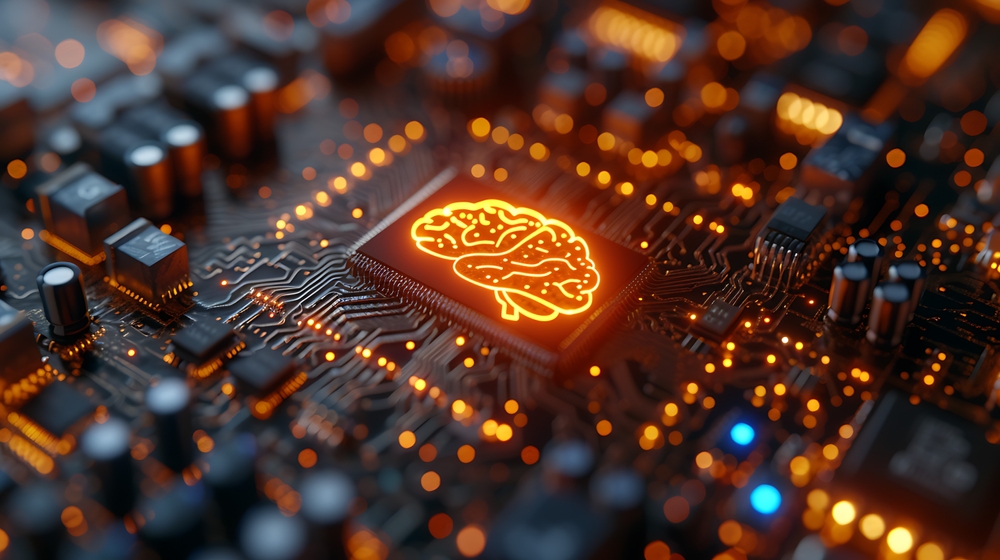Quantum computers are heralded as the next major technological revolution. Their ability to perform complex calculations exponentially faster than traditional computers could transform numerous industries. In this article, we delve into the fundamentals of quantum computing, its potential applications, and the challenges that remain in this exciting field.
Basics of Quantum Mechanics
Quantum computers are based on the principles of quantum mechanics, particularly the concepts of superposition and entanglement. While classical computers use bits that are either 0 or 1, quantum computers use qubits, which can exist in both states simultaneously. This property allows for a tremendous increase in computing power, enabling quantum computers to process vast amounts of data at once. The ability to perform multiple calculations in parallel makes quantum computing a groundbreaking technology with the potential to solve problems that are currently intractable for classical computers.

Difference Between Classical and Quantum Computers
Classical computers process information serially, handling one task at a time. In contrast, quantum computers can process information in parallel, thanks to the principles of superposition and entanglement. This parallelism allows quantum computers to solve certain problems much faster than their classical counterparts, especially complex mathematical problems. Tasks that would take classical computers years to complete can be accomplished in mere seconds by quantum computers, revolutionizing fields that rely on heavy computational power and leading to unprecedented advancements in technology and science.
Potential Applications
Quantum computers could revolutionize many fields, from cryptography to materials science to medicine. In cryptography, they could break current encryption methods, necessitating new secure protocols. In medicine, quantum computers could accelerate drug discovery by quickly analyzing complex molecular structures, leading to faster development of new treatments. Additionally, in materials science, they could uncover new materials with unique properties, driving innovation in various industries. The transformative potential of quantum computing spans multiple sectors, promising advancements that could significantly enhance our technological and scientific capabilities.
Challenges in Development
Despite their potential advantages, quantum computers face significant challenges. These include technical hurdles such as error correction and handling qubits at extremely low temperatures. Quantum bits are prone to errors due to environmental noise and decoherence, making reliable computation difficult. Researchers are working intensively to solve these problems by developing advanced error correction methods and improving qubit stability. Overcoming these challenges is crucial to making quantum computing a practical and reliable technology, capable of solving complex problems beyond the reach of classical computers. Continuous innovation and research are essential for the successful implementation of quantum computing.

Importance of Error Correction
Error correction is a critical aspect of quantum computing development. Quantum computers are highly prone to errors due to decoherence and noise, which can disrupt calculations. Effective error correction methods are essential to ensure reliable computations and system stability. These methods involve sophisticated algorithms and redundancy techniques to detect and correct errors in real-time. Advancements in error correction will play a pivotal role in making quantum computers practical and reliable for widespread use, enabling them to tackle complex problems with high accuracy.
Role in Cryptography
A major application area for quantum computers is cryptography. They could challenge existing encryption techniques by cracking common encryption algorithms. This poses significant implications for data security, as many current systems rely on these algorithms to protect sensitive information. To counteract this threat, the development of new cryptographic methods, such as quantum-resistant algorithms, is essential. These advancements will ensure that data remains secure in a future where quantum computing capabilities are fully realized, safeguarding privacy and protecting critical digital infrastructures.
Quantum Computing and Artificial Intelligence
The combination of quantum computing and artificial intelligence could lead to breakthroughs in various fields. Quantum computers could train complex AI models faster and more efficiently, enabling significant advances in pattern recognition, speech processing, and autonomous systems. By processing vast amounts of data simultaneously, quantum computers can enhance AI algorithms, making them more powerful and accurate. This synergy has the potential to transform industries such as healthcare, finance, and transportation, where improved AI capabilities can drive innovation, optimize operations, and solve complex problems that are currently beyond the reach of classical computing methods.

Developments in Materials Science
Quantum computers could discover new materials with extraordinary properties that classical computers cannot identify. This could lead to groundbreaking innovations in electronics, energy generation, and storage, as well as the creation of advanced materials. By simulating complex molecular interactions at unprecedented speeds, quantum computers can reveal materials with unique capabilities, such as superconductors and new catalysts. These discoveries have the potential to revolutionize various industries, driving progress in technology and sustainable energy solutions.
Impact on the Financial Industry
In the financial industry, quantum computers could solve complex optimization problems that were previously unsolvable. This could lead to better trading strategies, more accurate risk assessments, and optimized portfolio management. By processing vast amounts of data at unprecedented speeds, quantum computers can identify patterns and trends that classical computers miss, transforming the entire sector. The enhanced analytical capabilities can improve decision-making, reduce risks, and increase profitability, driving innovation and efficiency across financial markets and institutions.
Societal Impacts
The introduction of quantum computers will have significant societal impacts. Beyond technical challenges, ethical and legal questions need careful consideration. Data security is a major concern, as quantum computers could break current encryption methods, necessitating new cryptographic solutions. Additionally, the potential misuse of this powerful technology must be addressed to prevent malicious activities. Policymakers, technologists, and ethicists must collaborate to establish frameworks that ensure responsible development and deployment of quantum computing, balancing innovation with security and ethical considerations to protect societal interests and maintain trust in this transformative technology.

Future Prospects
Although quantum computers are still in their infancy, their potential is immense. Continuous research and development will help overcome existing challenges and make quantum computing a practical technology. As these advancements unfold, quantum computers are poised to revolutionize various fields, from medicine to finance. The future of quantum computing is promising and holds the potential to fundamentally change our world, enabling solutions to problems that are currently unsolvable and driving innovation across multiple sectors.
Conclusion
Quantum computing represents a paradigm shift in technology, offering unprecedented capabilities that could transform industries and improve our understanding of complex systems. While significant challenges remain, the ongoing advancements in this field are promising. By embracing the potential of quantum computers, we can look forward to a future where we solve problems previously thought insurmountable, driving innovation and progress in ways we have yet to fully imagine. Understanding and investing in quantum computing today is essential for harnessing its benefits and ensuring it is developed responsibly and ethically.

